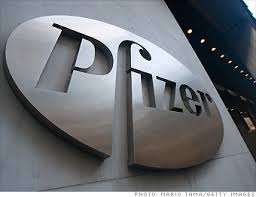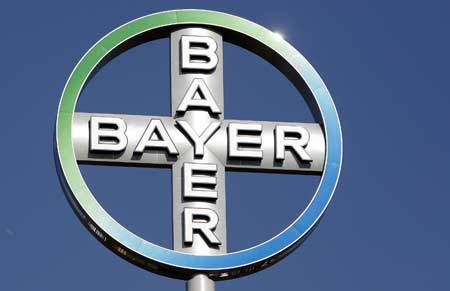
German publication, Der Spiegel, shocked the world recently with a report revealing that Western pharmaceuticals conducted various tests on unwitting patients in communist East Germany in the years leading up to the fall of the Wall in 1989. The report claims that over 50,000 persons were treated with experimental drugs, often without knowledge or proper consent and sometimes resulting in death.
Experiments were also carried out on preterm infants and alcoholics in a state of acute delirium, who were therefore not able to provide legal consent. Some 600 drug trials were undertaken, according to information accessed by Der Spiegel from archives of the former East German Health Ministry, the Ministry for State Security, the Institute for Drug Regulatory Affairs, and from private files of individual medical professionals.
Big Names, Big Figures
 Almost every big name in the pharmaceutical industry seems to have been involved, including manufacturers hailing from the USA, Switzerland and Germany. Companies taking part in these tests included Bayer, Pfizer, Sandoz, Roche and Schering. The tests were carried out at renowned universities and hospitals, including the Charité Hospital in East Berlin, which is said to have signed a lucrative six million Deutsche Marks-per-year deal to serve as a ‘testing ground’ for the new drugs.
Almost every big name in the pharmaceutical industry seems to have been involved, including manufacturers hailing from the USA, Switzerland and Germany. Companies taking part in these tests included Bayer, Pfizer, Sandoz, Roche and Schering. The tests were carried out at renowned universities and hospitals, including the Charité Hospital in East Berlin, which is said to have signed a lucrative six million Deutsche Marks-per-year deal to serve as a ‘testing ground’ for the new drugs.
The amount of money offered per study is staggering: up to 800,000 Deutsche Marks per test. Western pharmaceutical representatives are said to have made these lucrative offers to a central office in East Germany, taking advantage of the flailing East German Health System, which sorely lacked supplies and medications in local hospitals. Nicola Kuhrt and Peter Wensierski state in their article Deadly Side Effects: New Details Emerge in East German Drug Testing Scandal, “Joachin Petzold (Head of the ‘Advisory Office for Drugs and Medical Devices’ in East Germany in the early 1980s) and his comrades at the Health Ministry drummed up the funds for their republic, raising millions for the struggling East German economy… the government sold its sick citizens and prostituted the country as a laboratory for the West’s clinical trials”.
Deadly Drugs in Cold War Germany Exposed
Records reveal that two patients died during the testing of Trental, a drug used to improve circulation; another two fatalities were caused during the testing of medication for cardiovascoular disease; two more patients in a lung disease clinic passed away during tests of a drug made by Sandoz, a company which has since been taken over by Swiss company, Novartis.
The drug, called Ramipril, was developed to lower blood pressure, since high blood pressure is a common problem accompanying chronic pulmonary disease. The report claims that the patients were not fully informed of possible side-effects and risks, which included suffering from a stroke or heart attack. Evidence suggests that not even the doctors treating the patients were informed of which patients had received the drug and which were in the placebo group. One doctor at the clinic who voiced his concern to Petzold was disappointed to see his complaints ignored in favour of the 500,000 Deutsche Mark revenue received for the testing of Ramipril.
 Despite the findings, the German drug industry’s Association of Research-based Pharmaceutical Companies has released a statement saying that all tests conducted met the legally required standards of the time in terms of patient consent.
Despite the findings, the German drug industry’s Association of Research-based Pharmaceutical Companies has released a statement saying that all tests conducted met the legally required standards of the time in terms of patient consent.
Fortunately, several big pharmaceutical companies have pledged their support to a full inquiry. A spokesman from Novartis has agreed to cooperate with an independent research group and a spokesman from Roche has also pledged the company’s commitment to applying international rules and guidelines, noting, however, that “the state of knowledge” has changed considerably over the past 30 years. But changed standards aren’t enough to silence the victims.
Ronald Lässig, head of an association dedicated to helping victims of the testings, has publicly opposed the view that the tests were merely the result of “a communication problem between doctors and patients”, as claimed by Susan Knoll, Director of Communications for the German Association of Research-based Companies. Knoll has also stated that the applicable standards of the time were correctly adhered to – prior to 1996, she says, only physicians – not patients – were required to sign a letter of consent indicating that the patient had been correctly informed of risks. Lässig is demanding due compensation for the families of those affected, claiming that the East German experiments were conducted in a way that deliberately concealed information regarding side-effects and risks from patients. It is hoped that an independent inquiry committee provides justice to the families and survivors of the testings.
Adrian Tawfik says
This definitely needs investigation and the people harmed deserve compensation. The balance between big business and politics is precarious especially in the health industry. One can only hope this type of thing doesn’t happen today.